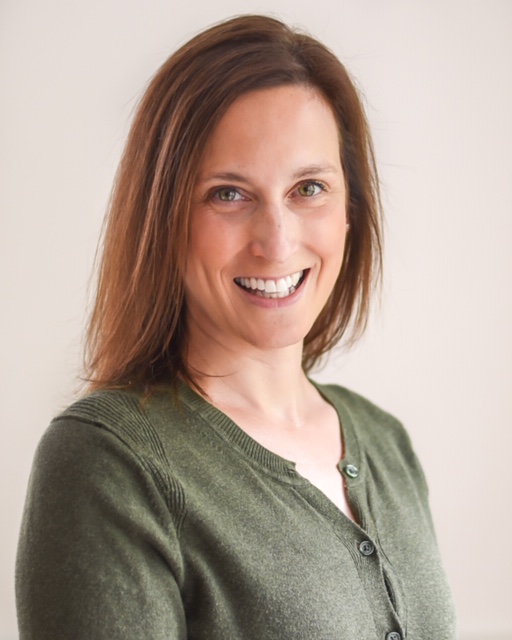Hannah Brown, MD is an assistant professor of psychiatry and researcher at the Boston University School of Medicine. She is the Director of Boston Medical Center’s Wellness and Recovery After Psychosis (WRAP) program, which uses a multidisciplinary, team-based approach to collaboratively treat patients with psychosis. The specialists at WRAP, which includes psychiatrists, psychologists, nurse practitioners, and social workers, provide intensive treatment that includes medication management, individual and group therapy, family education, and peer support. A specialized clinic within WRAP, the First Episode program, is designed specifically for patients who have recently experienced an initial episode of psychosis.
Brown’s interest in the brain started at an early age. She has a vivid memory of her father, a neurologist, bringing a model of a brain into her classroom for a presentation when she was in grade school. “I remember thinking, ‘this is amazing,’” she says. Before she attended medical school, Dr. Brown worked in a neurobiology lab, thinking she had found her field. But a psychiatry rotation in her third year of medical school changed her perspective.
“I worked on an inpatient unit that that took care of primarily individuals with schizophrenia and bipolar disorder,” she said. “And it was life-changing for a few reasons…I learned how debilitating an illness schizophrenia is as a primary psychotic disorder, how impactful it can be on the lives of those who have the illness and their families and friends, and how disruptive it is.”
She also learned that people with psychotic symptoms and illnesses can and do recover. Brown observed patients’ resilience in the face of the illness, “People can return to normal lives, or the lives that they want to live. You can return to school, you can go back to work, you can live on your own. You can have relationships.”
She also became fascinated with the idea that for individuals with psychosis, “their perception of the world could be so different than mine, with a delusional system, hallucinatory phenomena, and disorganized thinking.”
Specializing in psychiatry after that experience was an easy decision for Brown. “It became sort of the perfect marriage of my interests in terms of the biology of schizophrenia, and also the clinical population that I knew I wanted to work with.”
Brown did a year-long fellowship in schizophrenia following her psychiatry residency, and, since then, subspecialized again in first-episode psychosis. First episodes usually occur in what Brown calls a “really important transitional point in people’s lives” – their late teens and early twenties, when young people are seeking independence and have their whole lives in front of them.
“The young people I work with want to go to school. They want to begin relationships. They want to separate from families and really develop who they are. And then they get hit with this devastating illness and it really changes people’s lives.”
Brown says early, intensive intervention is a critical factor for positive longitudinal outcomes. “I sort of gravitated to this subset of patients, because I think there’s so much you can do early in the illness,” she says. “That, in particular, was quite exciting to me in terms of changing the course of a debilitating illness.”
“The young people I work with want to go to school. They want to begin relationships. They want to separate from families and really develop who they are. And then they get hit with this devastating illness and it really changes people’s lives.”
The COVID-19 pandemic and the racial trauma that epitomized 2020 hit many of WRAP program’s patients hard – the young patients in particular. “I think for many of our students, they’ve felt more isolated, they’ve felt alone and are not having that typical college experience,” Brown said. She also explained that chronic, repetitive trauma is a risk factor for psychosis and that many of the patients at BMC are particularly vulnerable to this sort of trauma; the patient population is largely made up of individuals of color and patients of low socioeconomic status, many of them from immigrant families. Many of Dr. Brown’s patients have experienced years of racism and microaggressions in school, starting as early as kindergarten. “So you’ve got this double hit in some of our patients. The effects of longitudinal trauma is something we think about a lot.”
As some pillars of normal life begin to return this spring, many of the program’s young patients, including many college students, are feeling increasingly hopeful. “People are going back to school, which is really encouraging, especially for some of our younger patients,” Brown said.
Despite its hardship, the pandemic has provided some teachable moments, causing Brown to rethink some of the clinic’s practices. The telehealth technology that the clinic implemented over a single weekend last March has allowed them to be more accessible and reach their patients more easily. “Many of our patients have limited financial resources and are of lower socioeconomic status,” she says. “Transportation is often an issue to get to the clinic.” She hopes to continue to see some patients using a hybrid model – both in-person and using telemedicine technology.
Going forward, Dr. Brown’s vision for the program is to provide “psychosis treatment without walls,” where staff can go into the community to provide their multidisciplinary team-based services. “I think that many people would benefit from us meeting them in the community, at their homes,” she says. “The multidisciplinary team model has to be adapted to serve the needs of our patients, of our population.”
It is this kind of person-centered thinking that makes Brown’s patients and colleagues grateful she left the lab for medical school.



